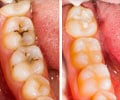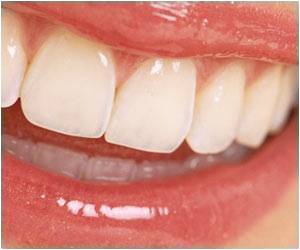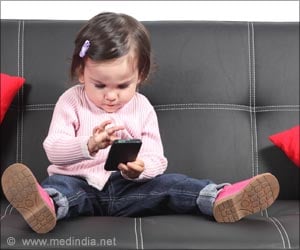Dental caries in small children can be avoided with fluoride varnish application, according to a report by the German Institute for Quality and Efficiency in Health Care.

TOP INSIGHT
Fluoride varnish could prevent dental caries in small children.
Caries is caused by bacteria in the dental plaque, sugary foods and drinks, and a lack of oral hygiene. Children are especially likely to have caries because the enamel on baby teeth is more sensitive than the enamel on permanent teeth. Permanent teeth are sensitive at first too: When they break through, their enamel has not yet fully hardened, making it susceptible to caries. If the primary teeth already have caries lesions, subsequent permanent teeth are often also "infected" with caries at an early stage. Particularly in young children, oral hygiene and caries prevention can be challenging, however.
Children until the age of 6 years, with or without caries of their primary teeth, were included in the research question of the present rapid report: Does the application of fluoride varnish to the primary dentition have advantages in comparison with standard care without specific fluoride application?
Studies focused on caries
The IQWiG researchers extracted results from 15 randomized controlled trials (RCTs), in which a total of 5002 children were treated with fluoride varnish, whereas 4705 children received no such treatment. In many studies, further measures for caries prevention in addition to the application of fluoride varnish were offered. These included trainings on oral hygiene, instructions on the correct tooth brushing technique or provision of toothbrushes and fluoridated toothpaste. The follow-up observation period was mostly two years, in some cases up to three years.
The outcome "caries" was investigated in all studies; side effects were investigated in almost all studies. Further outcomes such as tooth loss, toothache, dental abscesses or inflammation of the gums (gingivitis) were only rarely investigated. The respective data showed no difference between intervention and control group so that no conclusions on advantages or disadvantages of fluoride varnish application could be derived. Data on oral health-related quality of life were lacking completely.
Fluoride varnish promotes remineralization
A clear advantage of fluoride varnish was determined despite the very heterogeneous study results: Caries of primary teeth was less common after application of fluoride varnish than without it. This treatment could completely prevent caries in about every 10th child. And it would at least reduce progression of caries in further children. Apparently, it did not make a difference for the benefit of the fluoride varnish whether the children already had caries or whether their teeth were completely intact.
Source-Eurekalert
 MEDINDIA
MEDINDIA




 Email
Email








